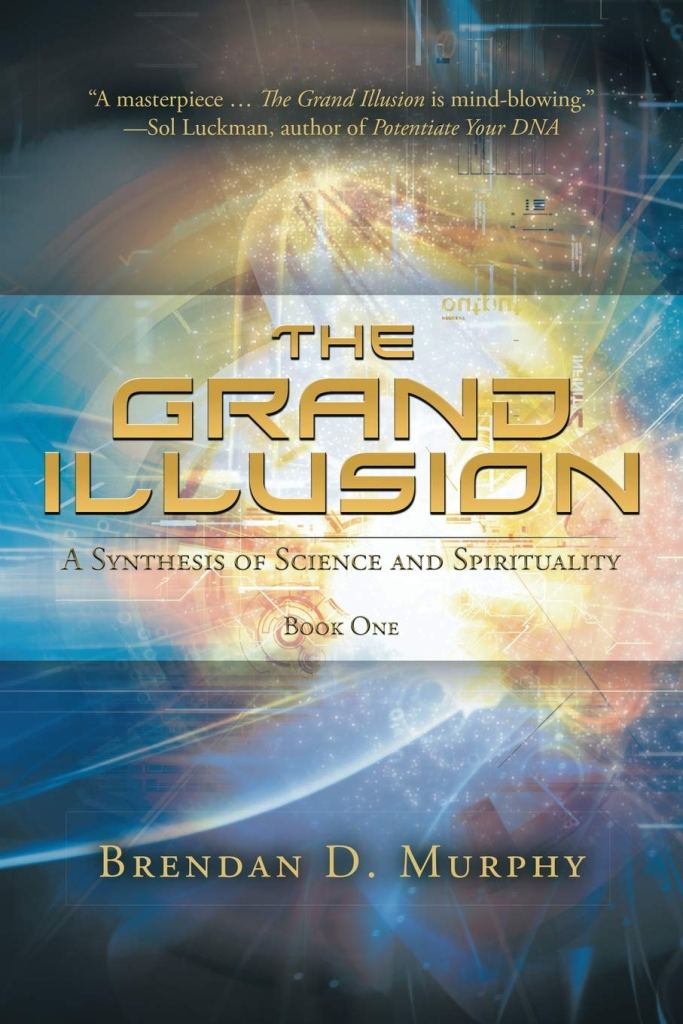Last week I preached a sermon that began a series on apologetics. It was called, “The Heart of Apologetics” or “Why we do apologetics.” This will be a 6-7 week series and I will speak two times; the one above and one is basically a summary of the book, “Tactics” by Greg Koukl. I wanted to post it on here, so here it is. I didn’t write the very end because it was just some examples of a poor attitude on my part, and a good attitude, when I was in Utah. I took me a really long time to write, probably about two months or more. I am so concerned about the subject and our response as Christians that I rewrote the beginning like 4-5 times. Anyway, here it is in its entirety.
Heart of Apologetics (Why?)
Romans 16:17-18 – “I appeal to you, brothers, to watch out for those who cause divisions and create obstacles contrary to the doctrine that you have been taught; avoid them. For such persons do not serve our Lord Christ, but their own appetites, and by smooth talk and flattery they deceive the hearts of the naive.”
The word “naive” is not meant to be insulting, neither is “simple” or “unsuspecting,” words used in other various translations. It is to tell us that there are people then as there are now who don’t know as much as they should or could about the message of the gospel. People accept a deception out of ignorance or desire. Apologetics is here to help.
I came across apologetics while looking at a particular deception within the church. Now, I use apologetics because I care about knowing what I believe to be true and to be able defend it. I care about this for my family and I care about it for you. Apologetics fortifies believers in their faith, whether they are wrestling with doubts and questions or simply seeking a deeper grounding for their biblical beliefs. After this series, I hope you will appreciate apologetics the way many others do who have a deep concern for the deception within and outside of the church.
We are going to examine apologetics in relation to ourselves and to those we love. We will also look at its connection to our culture, and why it is important for the future of our faith. In this our path will point out that this subject is all for the glory of God. And finally, we will look at some of the reasons why we may not participate in apologetics.
For ourselves – Study
Do you have hope? Do you have hope despite the world seemingly falling apart? What is the reason for that hope? Let’s look at 1 Peter 3:15, “but in your hearts honor Christ the Lord as holy, always being prepared to make a defense to anyone who asks you for a reason for the hope that is in you.”
Peter’s purpose is to strengthen those who are suffering because of their faith. The reason they (as well as us) endure and even find hope, is Jesus. Although Jesus is the reason for our hope, today, just as it was then, it is important to articulate why we believe in Jesus, as well as why he is our sufficient comfort and inspiration in difficult situations. After all the verse says to “make a defense” and that is a simple definition of what apologetics is.
When John the Baptist was in prison and wondered if Jesus was the Messiah John himself had proclaimed, Jesus provided evidence of His identity. Jesus did not rebuke John in his doubts but answered, listing his unique credentials as one who supernaturally fulfilled prophecies from ancient Hebrew writers.
Doubt creeps into the minds of the youngest/newest believers as well as the strongest, longest-lasting Christians. Challenging life circumstances prompts us to ask tough questions. Worldly pressures cause us to be unsure of who God is or if He really exists. If we don’t have a solid foundation of truth and know how to find answers for these questions, we will waver, tossed about by every wind of doctrine or worldly philosophy. That’s why we need to learn apologetics.
For others – Partake
Many people are wary, even resentful of Christianity. The demand for faith, humility, a submission to divine authority, a willingness to sacrifice, and repentance (which is the end of indifference and hedonism), are many roadblocks to a deep examination of the faith. There is a fear that their lives will get worse if they submit to its terms. The antidote is to defend the core claims rationally to show Christianity as objectively true. Apologetics demonstrate where we came from, who we are, what the problem is, what the solution to that problem is, and how we can flourish as creatures in this life and beyond, when reconciled to our Creator.
Christian apologetics employs the tools of theology and philosophy, and is also linked closely to evangelism and discipleship. Taking on the mantle of Christian apologist means you must be a good philosopher (if not a professional one). Those who do not yet believe the Bible typically aren’t interested in drawn out discussions of biblical doctrine. This is where the rational argument of philosophy becomes compelling. The use of philosophical apologetics can be used to remove or diminish intellectual obstacles hindering people from embracing Christ as Lord. Since I’ve become a Christian many of the unbelievers I observe exclaim warily of the evangelical “shoving religion down their throat.” Philosophical arguments break down those barriers, obviously in use with gentleness, patience and humility.
Paul sets the standard in his letter to the Thessalonians:
For our appeal does not spring from error or impurity or any attempt to deceive, but just as we have been approved by God to be entrusted with the gospel, so we speak, not to please man, but to please God who tests our hearts. For we never came with words of flattery, as you know, nor with a pretext for greed—God is witness. 1 Thessalonians 2:3-5
Our arguments may not be perfect in its philosophy or theology, but it is worth the risk to share and practice the ancient idea given by God himself, now entrusted to us. Let us partake in the practice of apologetics for the sake of others.
For our culture – Evaluate
Just after 9/11 people felt the quickening influence of spiritual matters in the US rise to 70%, a number not seen since the mid-late 50s. Before that, the numbers hovered around 30-40%. Yet, since then, it has quickly declined and the belief in God has become a thing to mock. For whatever reason Americans walked away from something they suddenly saw as influential, they moved toward answers found in men hostile to religion in general and Chrisitanity in the specific. Four men arose from the smoke and were deemed the The Four Horsemen, they led a people towards a hostile and militant atheist ideology called the “new atheism.” Their call was to counter, criticize, and challenge through rational argument wherever religion exerts undue influence, such as in government, education, and politics.
Sam Harris, a leader in this new atheism asserted after the earthquake and tsunami in Japan, “Either God can do nothing to stop catastrophes like this, or he doesn’t care to, or he doesn’t exist. God is either impotent, evil, or imaginary. Take your pick, and choose wisely.”
Richard Dawkins, another big influencer says, “The universe that we observe has precisely the properties we should expect if there is, at bottom, no design, no purpose, no evil, no good, nothing but pitiless indifference.”
What would you say to someone saying these quotes to you? Their idea is that God should have no bearing in our society and that there are no good answers to the world’s problems through a belief in God, and is in fact the major, if not the, cause for all of the problems in the world. Abolishment of faith is their goal. To most of them, we Christians are unreasonable, irredeemable, deluded, and either a fool or outright evil.
These people and those influenced by them have gone into the midst of the culture, to colleges and online, defending their brand of faith. They have been met head on by Christian theologians and philosophers we should know; William Lane Craig, Greg Koukl, John Lennox, Frank Turek.
Isaiah 1:18 reads, “Come now, let us reason together, says the Lord.”
Jesus, the ultimate arbiter of cultural change, is our apologetic exemplar; the one we look toward in an object lesson. He affirmed that we should love God with all of our being, including our minds. We should defend God’s truth when it is attacked. And when the Sadducees questioned Jesus on the heavenly state of a woman who married multiple brothers after the death of each one, what did Jesus do? After all the Sadducees had a point; she could not be married to all at the resurrection, or he had to deny the resurrection. The question was: Moses’ authority, or, the resurrection?
Jesus could have muttered a pious and unrelated platitude, threatened hell to those questioning his authority, or assert two logically incompatible propositions with no hesitation or shame. But, he started pointing out the Sadducees’ failure to know the scriptures or the power of God.
Jesus said, “For in the resurrection they neither marry nor are given in marriage, but are like angels in heaven. And as for the resurrection of the dead, have you not read what was said to you by God: ‘I am the God of Abraham, and the God of Isaac, and the God of Jacob’? He is not God of the dead, but of the living.”
In this seemingly simple statement, Jesus builds an argument rich in depth and reason. First, he challenges their assumptions about earthly institutions continuing in a resurrected world. The Bible doesn’t teach that marriage will continue, neither did Jesus believe it. Second, Jesus compares us to the angels, challenging the Sadducees’ disbelief in angels (they didn’t even ask him about angels). Third, Jesus quotes a text from scriptures highly esteemed by the Sadducees. He argues from their trusted sources which Jesus also endorsed. Fourth, Jesus says of God the father that he is the God of the living. He is quoting God, speaking to Moses, about those who have already died.
The crowd heard Jesus, were astonished at his teaching and that he silenced the Sadducees. Jesus’ arguments were challenging the culture of the Sadducees, as well as other groups of his day. He is a model for us today along with the other New Testament writers. Peter admonishes followers of Jesus to be ready. Paul speaks of coming against arguments that deny the knowledge of God (2 Corinthians 10:3-5; Colossians 2:8-9). Jude tells us to contend for the faith (Jude 3). Luke recognized the need for certainty of the things taught by recording the happenings from eyewitnesses, and the careful examinations he himself made (Luke 1:1-4). Let us evaluate apologetic thought to challenge wrong thinking in our culture.
For our future – Teach
Apologetics is for Christian conversion and intellectual confidence. Biblically understood, conversion is a radical turning away from sin, selfishness and Satan, turning toward God and his kingdom. What we are observing in our society today is nothing so radical but just the simple, purposeful and wholehearted embracing of sin.
A half century ago A.W. Tozer preached these words: “This is the day of excusing sin instead of purging sin. An entire school of thought has developed justifying sin within the church and trying to prove that sin is perfectly normal, and therefore acceptable.”
Consider this current headline: “US Anglican church ordains lesbian bishop.” When even those in our churches say, “God made me this way, so how can it be wrong?” fifty years after Tozer wrote what he did and we’ve come this far. How can we argue that we understand the bible better than we did then? How can we argue against movements within a culture that has so infiltrated our church?
With the current arguments against the Christian worldview and it’s acceptance within, it is easy to see the lack of knowledge that has grown in the 50 years since Tozer’s quote. In the academic realm of our culture many universities foundational on Christian ideals, Christian beliefs and arguments are seen as intellectual suicide within today’s common worldview. In the scientific realm where Christians took the lead in their quest to understand and give glory to God, we are now in a supposed war with science. The historic certainty of the Christian fight to eradicate slavery has turned into a presumed endorsement of it. Our New Testament understanding that a woman (declared an unreliable witness) brought the truth of Jesus’ resurrection to men, has suddenly turned into a patriarchy that silences women wherever they may appear. Our model to follow in Jesus’ footsteps and engage those most rejected in society, has turned into an exclusive hatred and fear of homosexuals. The human race in the beginning, called to care and nurture the beauty and provision of the world, we Christians are now named ignorant, thoughtless and even hostile to this “dying” world. Even our passion to see Christ the savior face-to-face and spend an eternity with him in heaven is considered bland and unappealing.
In the medievil Muslim civilization, the 8th to the 14th century, we see many advancements in science by Muslims in mathematics, astronomy, medicine and natural philosophy, now have few and arguably poor quality contributions. Many withdrew from the pursuit of scientific thinking. Why? With modern scientific advancement as well as Darwinian theory, Muslims declared much in science as contradictory and even forbidden to followers of Islam.
Is this the fate of Christ followers? Do we continually withdraw from realms of science, thinking, politics and culture and become like the Amish? Satisfied in a culture of our own making? Or do we, like Paul at the Acropolis in Greece described in Acts 17, partake and challenge the thinking that moves away from reason? Look up things the Church needs to give up in order to attract the younger generations online and you’ll see pleas to give up your ideas of music, money, buildings, style, and the like, which are important in contemplation, but one of the disturbing calls to pull away from is politics. The biggest influence in culture and there are calls for us to move away from arguments, thinking and the philosophy of politics. If we continually move away from many of the ideas we Christians have promoted, even with science and politics, we will have nowhere left to stand.
The lies, many in our culture have swallowed, are propagated continually in the forums of our day, churning out so-called truths to those too young in faith and wisdom to see beyond the words calling to abandon biblical truth, because they are unaware of the solid ground we stand on. Yet, in all this discouragement, there is hope. There is a resurgence of the philosophy of Christian apologetics, and an abundance of resources. It is our duty to push into the culture and influence it to the glory of God. Let us teach apologetic reasoning for those who come after us so they may continue strong in the faith.
For God’s glory – Understand
There was a show I remember back in my late childhood called Donahue, where Phil, the host, interviewed people in front of a live audience and part of it was audience participation of questions or statements. Guests were occasionally antagonistic to the host, other guests or the audience in general. When a show member criticized the obvious antagonist, the audience cheered the statements, many times drowning out the person’s response. Thus began my lifelong hatred of talk-shows with similar format. I hated the way the audience cheered or booed the ideology of whomever there was rallying cries against. There didn’t seem much thought in the process. This format was much copied over time due, I suppose, to its cost and ease of production, not to mention that people were drawn to the drama and conflict. These iterations devolved to the point where many of the shows had to have bouncers of a sort to stop people from slapping, punching or hitting each other over the heads with chairs. Today we continue in the blind cheering of simplistic ideas through shows like The View, The Talk, The Daily Show, Ellen Degeneres and so much more.
I want to give you an example of how this bleeds into the Church. I follow media that examines today’s devolving teachings. The other day I came across a church whose main focus is raising the dead. The leader used Matthew 10:8, “Heal the sick, raise the dead, cleanse lepers, cast out demons. You received without paying; give without pay.” The crowd cheers his introduction about raising the dead. He goes on with a story about raising a dead man on a beach. The story goes he was lying there dead and in rigor mortis and people began to pray for him to come back to life. When the main pray-er hears everyone else praying, their faith “exploded” and the dead man sat up. The crowd marvels, shouts, calls and cheers. They are excited and notably so. Someone being raised from the dead is something to shout about.
But here’s the thing; where is the reasoning in all this? A man lying on the beach dead for a couple of hours, with people just standing around, and someone begins to pray he sits up and there is no documentation on any of this? This would be poor enough judgement without the fact that no one was taught how to read their Bible. Here is the full reading of the story around Matthew 10:8. Matthew lists the twelve, then:
“These twelve Jesus sent out, instructing them, “Go nowhere among the Gentiles and enter no town of the Samaritans, but go rather to the lost sheep of the house of Israel. And proclaim as you go, saying, ‘The kingdom of heaven is at hand.’ Heal the sick, raise the dead, cleanse lepers, cast out demons. You received without paying; give without pay. Acquire no gold or silver or copper for your belts, no bag for your journey, or two tunics or sandals or a staff, for the laborer deserves his food. And whatever town or village you enter, find out who is worthy in it and stay there until you depart. As you enter the house, greet it. And if the house is worthy, let your peace come upon it, but if it is not worthy, let your peace return to you. And if anyone will not receive you or listen to your words, shake off the dust from your feet when you leave that house or town. Truly, I say to you, it will be more bearable on the day of judgment for the land of Sodom and Gomorrah than for that town.”
The leader points out in Matthew 28:19-20a, “Go therefore and make disciples of all nations, baptizing them in the name of the Father and of the Son and of the Holy Spirit, teaching them to observe all that I have commanded you.” He says this extends back to 10:8. We are commanded to raise the dead, he asserts. But if we are to take this to the full extent we shouldn’t go among the Gentiles, and only go to Israelites, as well as all the other stuff described.
We become like the world cheering for things we don’t understand but makes us feel good, because the speaker is charismatic, or it is simply incredible to believe. It’s like we’re shouting louder to drown out the sound of reason in our brain. Let us be like the Bereans; examining the things we are taught.
I never want to discount the works of God in other people, and I can’t really say if these teachers truly believe what they are saying or if the deceit is intentional, but we are called to a higher purpose – serving, growing, and defending the kingdom of God here on earth.
I could go on and on about this and many other leaders, but there is one thing that sticks out that we should all be wary of. He comes to the point where he says this: “I’ve caught a lot of flack throughout the years, but to be with people who actually want what I have means a lot… it means a lot.” And then comes the cheering and shouting.
I think at some point, if we feel as though we’re doing a good job, and people are paying attention, and we get caught up in the excitement, that is when we are in danger of losing site of the real reason for the faith we have, the works we do, and the gospel we preach. Paul says in Ephesians 3:20-21, “Now to him who is able to do far more abundantly than all that we ask or think, according to the power at work within us, to him be glory in the church and in Christ Jesus throughout all generations, forever and ever. Amen.” Let us understand the process of apologetic arguments are for the glory of God.
Why don’t we take part in apologetics, or evangelism?
Ignorance
One reason Christianity has failed to exert much influence on the major intellectual institutions of America is that too many Christians hold their beliefs in an uninformed and precarious fashion. We too often rely on cliche and platitudes, rather than pursuing answers to the toughest questions the unbelieving world can marshal.
In his book, The God Who Is There, Francis Schaeffer challenges the reader:
When we understand our calling, it is not only true, but beautiful—and it should be exciting. It is hard to understand how an orthodox, evangelical, Bible-believing Christian can fail to be excited. The answers in the realm of the intellect should make us overwhelmingly excited. But more than this, we are returned to a personal relationship with a God who is there. If we are unexcited Christians, we should go back and see what is wrong.
The apologist cannot substitute raw emotional fervor for intellectual insight and hard study. Rather, they should work hand in hand. As I am well aware of in my desire to embrace the fullness of what it means to be a Christian apologist.
Heightened expectations
Another reason we do not study or practice is we have too high expectations for the things we have decided to take part in. We believe that if enough evidence is presented, a new believer will be born. The reason martial art masters can punch through boards and bricks, is because they are punching at a point beyond the board. Their result is beyond the wall they are breaking through. Our wall when taking part in evangelism or apologetics is a person’s change of heart. To break through that barrier is not our responsibility; that is God’s responsibility. Just because we have perceptibly, “done all the work,” doesn’t mean God will break through. Our barriers to break through are our own doubts, fears, worries, or ideas of opportunity.
We also need to give up our idea of perfection. My ideas may not persuade anyone, but it doesn’t stop me from studying, and ultimately sharing the things I know. Surely the evidence you present to an atheist is never going to be the perfect wrecking ball to their heart. One person’s barrier may be the apparent contradictions in the bible, and all the reasons for God’s existence won’t matter one lick of spit to them. That doesn’t mean we give up because our arguments aren’t fully realized, that means we just change tactics.
Not everyone Christ witnessed to followed
Which brings us to another reason we may not participate in apologetics: Jesus is our perfect example of persuasion. I am constantly amazed at how Christ answered people, not with the same rote answers, but with deep insight to see into the heart of the person he addressed. But even Christ “failed”. Jesus was asked a question by a rich man about how to gain eternal life. An earnest person sought answers and walked away from Christ saddened at his answers, apparently no longer desiring eternal life because in this world, he had so much stuff.
Christ knew this man. Knew what he really was seeking. From the perspective of making disciples, Christ failed. Was there something else he could have said or done? Why is this even included in the Bible? After the man walked away thinking about his stuff, Jesus tells his disciples how hard it is for a rich man to get into the kingdom of heaven. They’re flabbergasted that anyone even gets in at all. Jesus tells them not to worry, but that the things which are impossible for man, are no problem with God. And Peter is all sad cause they will probably end up with nothing because they started walking around with Christ. Christ chills them with stories of all the thrones they’ll sit in, along with Christ’s major throne, judging all the other people of Israel. And how everybody else is going to get a hundred times the satisfaction in their eternal life despite all the stuff they walked away from in this one because of the things they made first in their life; that first thing being God and they just have to be content until the last comes.
That story, that one is for us. We don’t know the rest of the story with the rich man, but we do know that Christ said all the right things for that man, for that time. God knows what happened to him later, and we don’t know what will happen to those we witness or give our best arguments to. Our apparent failure is not to be dwelt on – we move on because we were thankful for the opportunity to share our understanding of the world with others, to be an example of Christ.
Opportunity
Which brings me to the final point – our opportunity. We live in a world of busyness with little time in our schedules for spontaneous discussion. You all know this, we’ve all heard it. We can’t all put on desert sandals and just walk from point A to point B with crowds of people ready to discuss their favorite worldview along the way. Not that there is enough busyness for us, so we stir into the pot a little Covid-19 and we all get to choose sides, with all the experts coming out with different ways to prevent or lessen it everyday. It’s like someone thought that we didn’t have enough doubt and uncertainty in our life. We needed new things to figure out better divisions on love, authority, government intervention, and all that has gone along with it. Don’t even mention the time it takes to study up on philosophy and theology. How do I find the time and opportunity?
I’m going to get a little rough here, but there is time. When there is something we enjoy, we find the time. If we can find the time to do the things we enjoy, we can surely find the time to do things that are necessary. What are we here for after God converts us, but to sow that same seed found in us, into others. Like the rich man, do we walk away shaking our head because there wasn’t enough time? How much doubt have you had because of difficult questions about God and the Bible? Who in your life has walked away from the faith because a good God wouldn’t allow “these things” to happen? Does it matter that you can’t rightly dialogue with your neighbor about what they identify as?
If these questions matter to you, and maybe you want to start down the road where you can, with confidence, address these things to those around you, then you will find the time, and the opportunity to study and share. And with this series, we hope to help guide you to the ideas, the resources, and the people whose main concern is bringing the kingdom of God to a world increasingly uninterested in the eternal. Our faith should be prepared for the challenges posed by opposing worldviews wherever they manifest, for yourself, for your loved ones significantly affected by bad thinking so easily found.
Let’s go back to 1 Peter; “do it with gentleness and respect, having a good conscience, so that, when you are slandered, those who revile your good behavior in Christ may be put to shame. For it is better to suffer for doing good, if that should be God’s will, than for doing evil.” Our arguments should never be separate from our character, for the character we display is what draws people to us and ultimately, to God and gives us the opportunity to defend the reason for our hope. This verse hit me when, while I was in Utah, my niece came to a family gathering wearing a shirt with Pope Francis on it and below it said, “The Pope is Dope.”
















